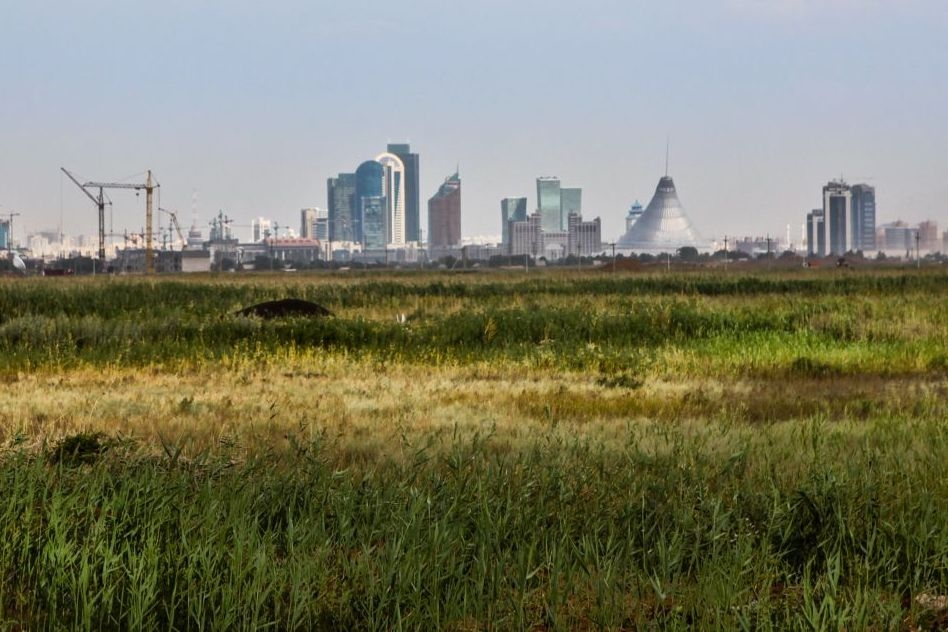Photo credit: ninara on flickr
What Canadians Can’t Miss
It’s raining reforms in Kazakhstan.
The Kazakh government’s recent economic reforms are preparing the soil for better business conditions. More Canadians should be there, among other nations, seeding their business ideas on Kazakh lands.
Since the beginning of this year, foreign companies no longer have to pay corporate income, land or property tax in Kazakhstan. The exemption from income and land tax will last for 10 years, the property tax for eight. The law also applies a stable tax rate and allows investors to hire labour without a foreign labour quota. And more incentives are soon to be announced.
The most developed country in Central Asia, Kazakhstan is little-known to many small and medium Canadian businesses. Yet, some big Canadian corporations have moved into Kazakhstan in the beginning of the ‘90s, when the new independent country revealed its rich natural resources.
Today, around 40 large Canadian businesses operate in oil, mining, aviation and other sectors. Among them, the uranium producer Cameco and livestock genetic export company Xports international.
A family-owned business, CanAgro, discovered Kazakhstan’s market by chance. In 2000, the dealer from Manitoba started exporting agricultural equipment to Russia. The company found that just across the Russian border, there was another country hungry for tractors, swathers and grain carts.
In fact, the Central Asian country is the sixth largest wheat producer. The country, however, lacks agricultural machinery, importing 99 per cent of its farming equipment. Melissa Vencatasamy, CanAgro’s representative, says North American agricultural equipment is ideal for Kazakhstan because of similar growing conditions.
Even though Canada is one of Kazakhstan’s top 10 investors, it falls behind European countries, the United States, China and Russia. To put this fact into perspective: In 2012, Canada’s share in foreign direct investments into Kazakhstan concluded only four per cent, while Netherlands—37 per cent, according to the National Bank of Kazakhstan.
The world’s economists marked Kazakhstan along with other 32 countries as the new frontiers—rivals to the BRIC economies of Brazil, Russia, India and China. While the Canadian government is trying hard to push for Canada-EU free trade agreement, the European leaders are already turning their eyes away to the East.
Little-known market
Sébastien Dakin works for the Canada Eurasia Russia Business Association (CERBA). The association facilitates Canadian companies in the Eurasian market, by providing information and organizing networking events. Dakin says Canadian businesses may be late to enter Kazakhstan’s market simply because of a lack of awareness.
“Kazakhstan is far away from Canada, it’s not the first market that Canadian companies are thinking about, when they think about exporting and doing business,” he says.
At this moment, Dakin says, Canadian investments are “minimal.” CERBA wants to change that. This June, the association held the first official Canada-Kazakhstan business forum in Calgary. The forum brought together governments, industries and enterprises of the two countries.
The conference turned out to be so successful that both sides have decided to make it an annual occasion. CERBA is also creating a special bilateral business council to discuss trade and investments between the two countries. It is expected to start functioning within a year.
Benefits of Eurasian market
In a world that represents one global economy, Kazakhstan and Canada are destined for economic cooperation. The two small economies mainly depend on trade to sustain their economic growth and development, says Stephen Wilhelm, a representative of Export Development Canada (EDC).
The trade between the two countries has recently decreased due to the global economic downturn, says Wilhelm. Yet, it doesn’t mean Canada is less active. Wilhelm says: “We are spending more time in Kazakhstan, exploring more potential people and companies.”
One of the important benefits of working in Kazakhstan is its location, Wilhelm says. Chinese and Eastern European markets are within the hand’s reach. This allows Canadian businesses to expand their trade beyond one country.
Kazakhstan is a part of the Common Wealth Independent States—a union of eight post-Soviet countries. The newly created Eurasian Economic Union permits free movement of goods, services and capital between Armenia, Belarus, Kazakhstan and Russia.
Since its separation from the former Soviet Union in 1991, Kazakhstan has been undergoing changes to establish liberal economy, and opened the country for foreign investors. Investment process, however, stayed complicated. Many investors lamented the heavy bureaucracy, long waiting times and confusing rules.
The new legislatures should help with removing these barriers. In addition to new laws, the Kazakh government has introduced the so called “100 steps” program to increase the country’s economic competiveness. The program foresees institutional reforms that will enhance the rule of law, install efficient bureaucracy and make the government accountable.
***
It has been 12 years since CanAgro began operating in Kazakhstan. This June, the company has received additional funding of $5 million from EDC to export more agricultural machinery to the country. The company is now in the position to advice Canadians who plan to conduct business in Kazakhstan.
It gives a birth to a new business idea: How about staring exporting and importing rich cultures of the two countries? No risks, no competition, 100 per cent satisfaction.

